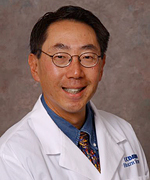
Every spring around this time, thousands of graduating medical school students get matched with residency positions at hospitals and clinics across the country, the final stage in their training to become doctors practicing on their own.
This year’s match game carried some good news: 91.4 percent of the openings for family medicine residencies were filled by the graduates, the highest percentage ever. But there was a catch: the percentage of positions filled went up in part because the number of positions available went down, the result of several family medicine residency programs closing within the last decade.
The total number of medical school grads moving into family medicine residencies this year will actually be lower than it was in 2000.
And that is bad news for patients everywhere. This country has a shortage of primary care doctors, the physicians who serve as the first line of defense against illness and can be crucial in helping people prevent disease and stay healthy.
Why the shortage? Family physicians carry the perceived millstones of having to know too much about too much, coupled with longer hours of work for lower compensation, compared to specialists. More and more medical school graduates have been going into dermatology, anesthesiology and other specialties, which pay significantly more.
Yet despite the challenges, this year more than 2,400 dedicated individuals were not detracted and heeded their calling toward family medicine. This is evidence of a strong sense of social responsibility among the current generation of college-age Americans. As we saw in the last presidential campaign, these young people share a technological sensibility, a desire to redirect government’s resources in daily lives, and a demand for social justice, including increasing assess to health care.
Many medical students actively practice this philosophy; international medicine and medical missions are popular rotations. At UC Davis, 85 percent of the medical students volunteer in student-run clinics that serve minority communities and the homeless. Once engaged with such work, they eagerly share their experiences of outreach through social networking that intertwines personal and professional lives.
Those of us who train family physicians face the challenge of redesigning our curriculum to resonate with medical students beyond workload and wages. Most family medicine residencies are housed in departments of family and community medicine. For most medical students, the concept of family medicine is clear. The discipline of community medicine is less so.
To address these views, we at UC Davis have begun to develop a new track within our program that will focus on advocacy and policy. The goal of the track is to help these doctors visualize their neighborhoods or communities as potential patients. Once that vision has been established, the residents pursue lines of proactive engagement, immersing themselves in the public policy process in their communities, region and state.
The track is not meant to produce a policy wonk or even steer a resident into another degree such as a masters of public health, or a fellowship. Rather the curriculum is designed to integrate residents within the daily workings of the University of California’s Office of the President, county land use agencies, local zoning commissions, or state Assembly and Senate health committees.
These are all places where policy is made that affects the health of their future patients, and their patients’ communities. The design of a neighborhood, for example, can dictate whether people walk or drive, whether they exercise regularly, and whether they eat fresh food or processed products. And all of this can affect their health before they ever reach the exam room.
I freely admit to applicants that our program cannot make up for the compensation gap between family medicine and specialties. And, given their significant student debt, that concern cannot be minimized.
What we can offer is an opportunity for them to revisit their personal statements from their medical school applications and fulfill those aspirations and build upon them. We can offer them a chance to speak in a clearer, wider, and louder voice and to realize that their patient panel is not dictated by third-party payers, but will be defined by their visions and their hearts.
Ronald L. Fong, M.D., M.P.H., is director of the Family Medicine Residency Network in the Department of Family and Community Medicine at UC Davis.





